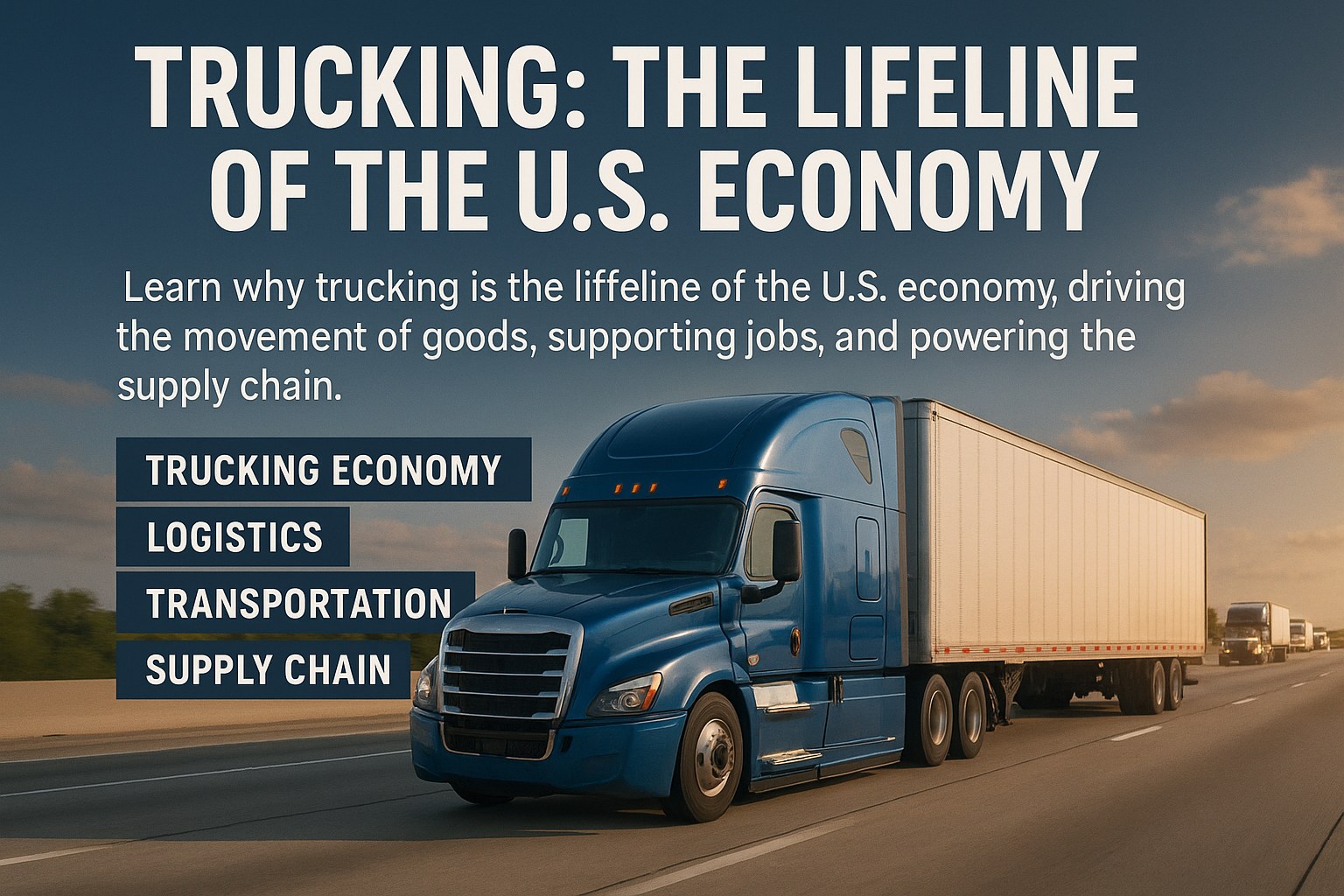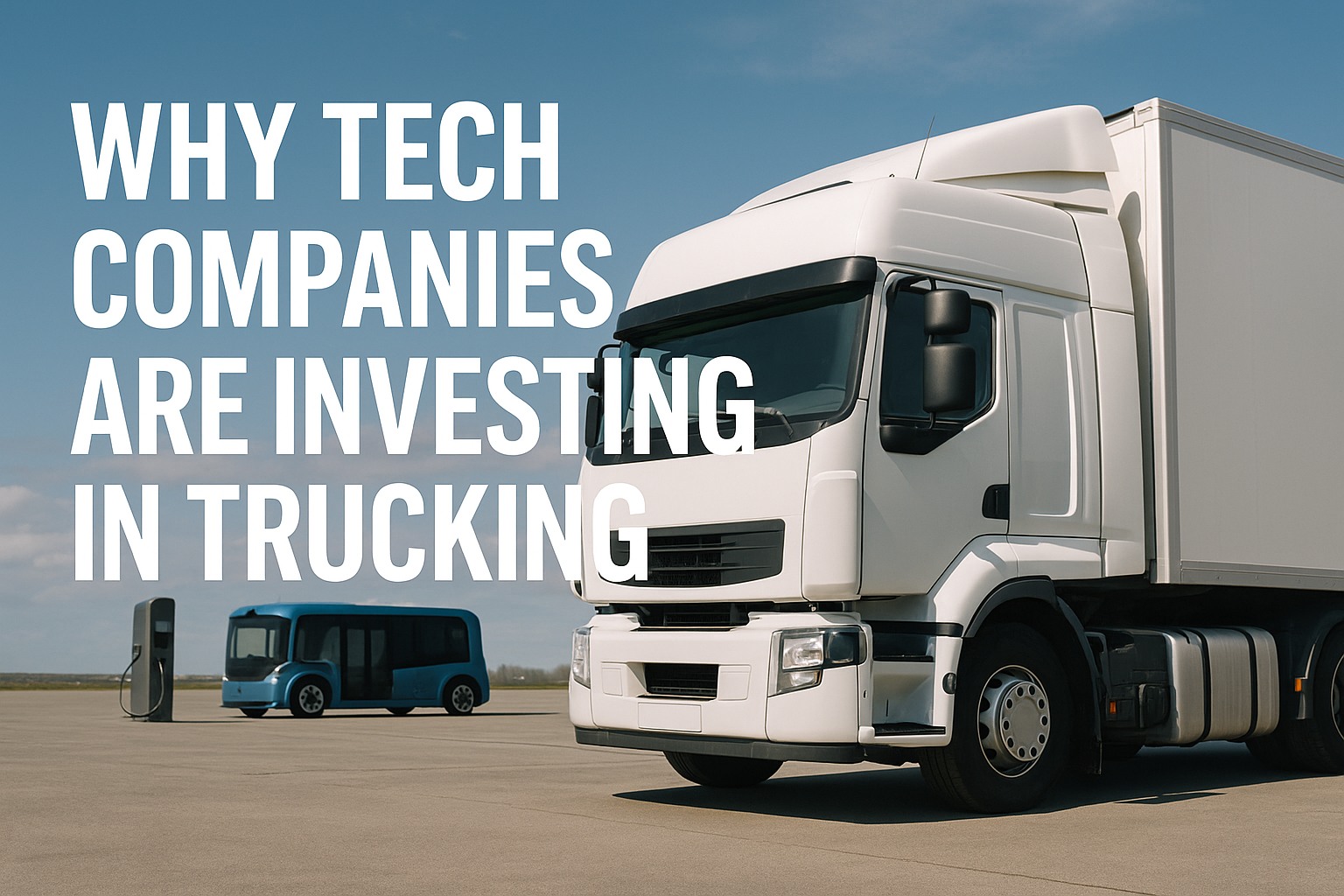The Youth Gap Crisis: Understanding the Challenge
The numbers paint a stark picture of the industry's demographic challenge:
49
Average driver age
80,000
Driver shortage
6%
Drivers under 25
300K
Retiring by 2030
Breaking Barriers: Why Young People Avoid Trucking
1. Lifestyle Perception Problems
Primary BarrierChallenge: 73% of young adults view trucking as incompatible with work-life balance
Reality Gap: Modern regional and dedicated routes offer home-daily options
Perception Issues: Outdated imagery, lack of technology awareness, family concerns
2. Technology Expectations
Digital Native NeedsYoung Driver Expectations: Mobile-first platforms, real-time communication, digital workflows
Industry Reality: Many fleets still use paper logs, outdated dispatch systems
Technology Gap: 68% of carriers lack modern driver apps and digital tools
3. Career Path Uncertainty
Growth ConcernsPerception: Dead-end job with limited advancement opportunities
Reality: Multiple career paths: owner-operator, dispatcher, safety manager, fleet executive
Communication Gap: 82% of carriers don't clearly present career progression
4. Financial Misconceptions
Compensation ClarityMyth: Low-paying job with no benefits
Reality: Average $75,000+ annually, comprehensive benefits, sign-on bonuses
Issue: Complex pay structures confuse potential recruits
5. Training Barriers
Entry ObstaclesChallenges: CDL school costs ($3,000-$7,000), 3-4 week commitment, age restrictions
Solutions: Company-sponsored training, paid CDL programs, apprenticeships
Innovation: Safe Driver Apprenticeship Program allows 18-20 year olds interstate driving
Transform Your Driver Recruitment Strategy
Implement proven strategies to attract younger drivers and secure your fleet's future. Join industry leaders building sustainable workforces.
Proven Strategies for Attracting Young Drivers
Digital-First Recruitment
Modern Channels
- Social media campaigns on TikTok/Instagram
- Mobile-optimized application process
- Virtual reality truck tours
- Influencer partnerships with young drivers
- Gamified recruitment experiences
Lifestyle-Focused Benefits
Work-Life Balance
- Guaranteed home time options
- Flexible scheduling systems
- Pet and rider policies
- Modern truck amenities
- Mental health support programs
Technology Integration
Digital Tools
- State-of-the-art truck technology
- Mobile apps for everything
- Real-time communication platforms
- Gaming-style performance tracking
- Social connectivity features
Career Development
Growth Pathways
- Clear advancement roadmaps
- Mentorship programs
- Leadership training
- Business ownership paths
- Cross-training opportunities
Success Story: How Swift Transportation Reduced Average Driver Age by 12 Years
Swift Transportation's revolutionary approach to youth recruitment demonstrates the power of comprehensive strategy:
The Swift Academy Model:
- Free CDL Training: 3-week paid program eliminating $5,000 barrier
- Guaranteed Employment: Job offer before training starts
- Mentorship Program: 200 hours with experienced driver
- Technology Focus: Latest trucks with advanced safety features
- Career Roadmap: Clear path from driver to management
Results: 3,500 drivers under 25 recruited in 2 years, 72% retention rate (industry average: 45%), average driver age reduced from 51 to 39.
Investment vs. Return: Young Driver Programs
| Strategy | Investment Cost | Young Drivers Attracted | ROI Timeline |
|---|---|---|---|
| Paid CDL Training Program | $5,000 per trainee | 150-200 annually | 6 months |
| Social Media Recruitment | $2,000/month | 50-75 monthly leads | 2 months |
| Technology Upgrades | $50,000 initial | 30% application increase | 12 months |
| Apprenticeship Program | $8,000 per apprentice | 85% completion rate | 9 months |
| Campus Partnerships | $25,000 annually | 100+ qualified candidates | 4 months |
| Referral Bonuses | $2,000 per hire | 40% of new young drivers | Immediate |
| Total Program Investment | 500+ young drivers/year | 8 month average | |
Building Your Youth Recruitment Program
Phase 1: Foundation (Month 1-2)
Setup- Analyze current driver demographics and turnover
- Survey young employees about attraction factors
- Audit technology and modernization needs
- Develop youth-focused value proposition
- Create dedicated recruitment team
Phase 2: Program Development (Month 3-4)
Build- Launch paid CDL training program
- Develop mentorship structure
- Create career progression roadmaps
- Design lifestyle-friendly routes
- Implement modern technology
Phase 3: Marketing Launch (Month 5-6)
Promote- Deploy social media campaigns
- Partner with schools and organizations
- Host virtual career fairs
- Launch referral programs
- Create compelling content
Phase 4: Scale & Optimize (Month 7+)
Grow- Analyze recruitment metrics
- Expand successful channels
- Refine training programs
- Build alumni networks
- Continuous improvement
Creative Recruitment Tactics That Work
Gaming Partnerships
- American Truck Simulator sponsorships
- Esports team partnerships
- Virtual trucking competitions
- Recruitment through gaming platforms
Result: 200% engagement increase
TikTok Success
- Day-in-the-life videos
- Truck tour content
- Driver influencer program
- Viral recruitment challenges
Impact: 10M+ views, 5K applications
Education Partnerships
- High school CDL programs
- Community college partnerships
- Military transition programs
- Trade school integration
Value: 500+ qualified candidates/year
Financial Incentives
- Student loan repayment
- $10K sign-on bonuses
- Guaranteed minimum pay
- Performance bonuses
Effect: 65% application increase
Technology Tools Young Drivers Expect
Mobile-First Everything
Must-Have: Apps for dispatch, navigation, communication, documents
Impact: 80% of young drivers rate mobile tools as "essential"
Real-Time Performance
Features: Instant feedback, gamified metrics, achievement badges
Result: 45% higher engagement among drivers under 30
Social Connectivity
Tools: Driver community apps, team messaging, social features
Benefit: 60% reduction in isolation-related turnover
Advanced Truck Tech
Equipment: Collision mitigation, lane assist, comfort features
Attraction: 75% cite modern trucks as recruitment factor
Transparent Earnings
System: Real-time pay tracking, instant settlement options
Appeal: 90% want visibility into earnings
Digital Training
Platform: E-learning, VR simulators, micro-learning modules
Preference: 85% prefer digital over classroom training
Start Building Your Young Driver Pipeline Today
Don't let the driver shortage cripple your operations. Implement proven youth recruitment strategies and secure your fleet's future with the next generation of professional drivers.
Frequently Asked Questions
Traditionally, interstate commercial driving required drivers to be 21+. However, the FMCSA's Safe Driver Apprenticeship Program now allows 18-20 year olds to drive interstate under specific conditions: completion of approved training program, 400 hours of on-duty time with experienced driver, and vehicles equipped with advanced safety technology. This opens 3.4 million potential new drivers. States also allow intrastate driving at 18.
Initial investment ranges from $50,000-$200,000 depending on fleet size and program scope. Key costs include: CDL training sponsorship ($5,000 per student), technology upgrades ($25,000-$75,000), marketing campaigns ($2,000-$10,000 monthly), and program management. However, ROI is substantial: each retained young driver saves $12,000 in turnover costs, increases productivity 15%, and typically stays 2x longer than traditional hires. Most fleets see positive ROI within 6-9 months.
Research shows Gen Z and millennial drivers prioritize: guaranteed home time (87% rank #1), modern equipment with technology (82%), clear career advancement paths (78%), mental health support (73%), and flexible scheduling options (71%). Traditional benefits like health insurance remain important but aren't differentiators. Unique perks that resonate include: pet/rider policies, gaming lounges at terminals, student loan assistance, and instant pay options. Work-life balance trumps pure compensation for 68% of young drivers.
Small fleets have unique advantages: personalized attention, faster advancement, direct owner relationships, and flexibility. Successful strategies include: partnering with other small fleets for shared CDL training programs, leveraging local community connections, offering ownership pathways faster than large carriers, providing custom schedules, and creating family-like culture. Small fleets converting 1 young driver monthly can transform their demographics in 2 years. Focus on your strengths: accessibility, growth opportunities, and personal touch.
Successful social media recruitment requires authentic content and platform-specific strategies. TikTok: Day-in-the-life videos, truck tours, and driver stories generate 10x engagement. Instagram: Visual content showing lifestyle, modern trucks, and driver achievements. YouTube: Long-form content about careers, training, and earnings transparency. Facebook: Targeted ads to parents and community groups. Key metrics: Videos under 60 seconds get 3x more views, user-generated content converts 5x better than corporate content, and responding to comments within 1 hour increases applications 40%. Budget $2,000-$5,000 monthly for 50-100 qualified leads.







